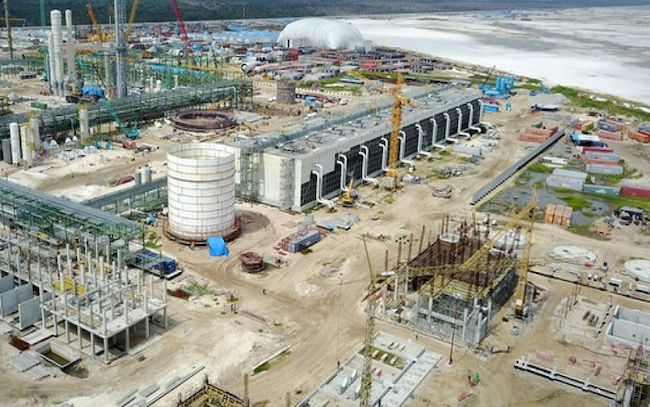A recent Moody’s report on Nigeria’s fiscal and external position highlights several key factors that will impact the country’s economy. One of the notable findings is the potential modest improvement in Nigeria’s current account when the Dangote refinery becomes operational. This improvement is expected to result from the reduction in importation costs, particularly related to petroleum products. Nigeria spent over $14 billion on importing refined petroleum in 2021, and the operation of the Dangote refinery would allow for domestic production, reducing the need for imports. Additionally, the report mentions that the refinery’s operation would lead to a decrease in Nigeria’s crude oil exports as part of the production will be utilized domestically.
Although Nigeria is expected to benefit from higher oil prices this year as an oil exporter, Moody’s notes that the country’s economic and financial performance has gradually deteriorated since the beginning of the year, with subdued growth recorded at 3.5% year-on-year in the first half of 2022. The positive impact of higher oil prices on Nigeria’s fiscal accounts has diminished due to constraints on oil production and faster-growing oil consumption, driven by the country’s economic development and the oil subsidy program. The report indicates that the cost of the subsidy is borne by the government through transfers to the Nigerian National Petroleum Company (NNPC). However, the financial reporting and oversight of the subsidy mechanism are weak, and successive administrations have struggled to eliminate oil subsidies.
Moody’s raises concerns about Nigeria’s current government debt, stating that although the general government debt is relatively small at 32 per cent of GDP as of the end of 2021, the share of revenue dedicated to servicing the debt is exceptionally high. The high debt servicing costs limit the government’s ability to allocate funds for public services, creating a trade-off between debt repayment and delivering essential services to the Nigerian population. Without structural reforms that enhance government revenue, the affordability of debt is expected to weaken further, posing risks to debt sustainability.
Furthermore, the report points out that higher oil prices have not improved Nigeria’s foreign exchange liquidity. Foreign exchange reserves have declined by $1 billion since the beginning of the year, reaching $39 billion at the end of August 2022. The Central Bank of Nigeria (CBN), the main provider of foreign exchange in the country, has scaled down its interventions, leading to depreciation pressure on the currency and a widening gap between the official and parallel market exchange rates.
In conclusion, Moody’s report underscores the potential benefits of the Dangote refinery for Nigeria’s current account, particularly in terms of reducing importation costs. However, it also highlights the challenges faced by Nigeria in terms of deteriorating economic and financial performance, weak oversight of the oil subsidy program, high debt servicing costs, and foreign exchange liquidity concerns. Addressing these issues will require structural reforms to enhance government revenue, improve transparency in fiscal reporting, and promote a more sustainable and resilient economy.





